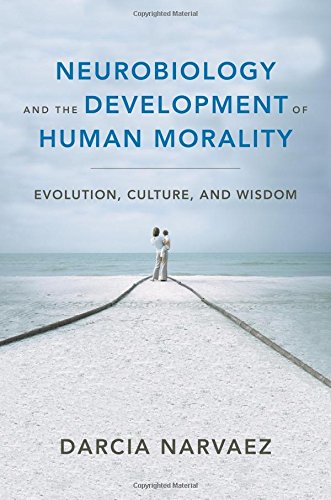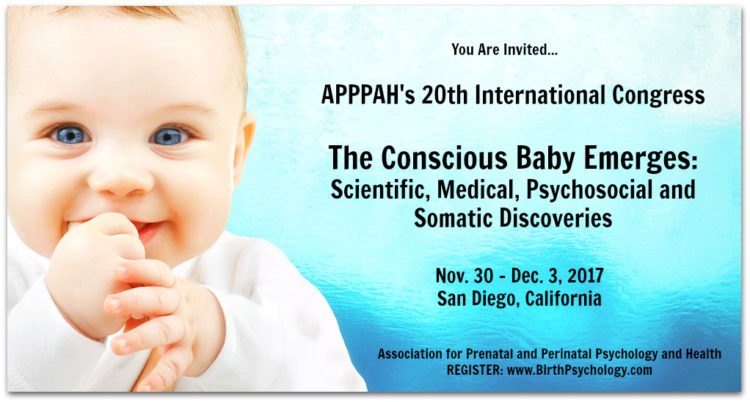We hear a lot about the type of parenting that helps children reach positive outcomes—authoritative parenting. To put it simply, it is warm but firm (setting boundaries with high expectations). This contrasts with authoritarian parenting which is firm but not warm, and with permissive parenting which is warm but not firm. Although there is controversy about how applicable these categories are to non-Euro-American groups, my worry is that people are applying them to babies.
Babies are different from children. Babies emerge at full-term birth like fetuses of other animals and really should stay in the womb another 9-18 months if it were physically possible, which of course it is not. Even full-term babies (40-42 weeks of gestation) arrive only “half-baked,” needing months of warmly responsive care to grow well. Rapidly developing in the first years of life, baby bodies/brains evolved to expect care that matches up with their maturational schedule.
As Allan Schore has documented, the right hemisphere is in a sensitive period for growth in the first months after birth, shaping self-and social-regulatory systems for life. In fact, virtually all brain systems are shaped by early experience—from stress response to neuroendocrine and immune systems function. These are difficult if not impossible to alter later.

What did babies evolve to expect? Like all social mammals, babies expect nearly constant touch (with movement), which promotes DNA synthesis and growth, and keeps systems calm as they finish setting parameters and thresholds after birth. They expect breast milk frequently (on request) and as needed to provide the hormones for neurotransmitter and immune system development (which infant formula does not provide). They expect companionship care—warmly responsive, playful relations with familiar caregivers as they set up parameters for social intelligence.
How do we know that babies who receive what they need develop better than those who do not? We cannot use randomized controlled experiments with people but do so with animals, demonstrating, for example in Michael Meaney’s lab, that affectionate touch in early life is critical for lifelong epigenetic control of anxiety in mammals. We can also study cultures where needs are met, which anthropologists like Melvin Konner (The Evolution of Childhood) have done. Small-band hunter-gatherers provide young children with everything they expect, keeping them calm in the early months and years. We can see the results in adults who are cooperative, generous and intelligent.
In my lab we study development from an evolutionary systems perspective. We examine how the practices young children evolved to expect—baby baselines—play a role in their social, cognitive and moral development and wellbeing. We find that the practices mentioned above all matter for these outcomes.
So when I hear that “children are resilient” when babies are left alone or to cry, I get worried. It shows a lack of understanding that babies are different from children and deep ignorance about what babies need to flourish.
Practicing authoritative parenting with a baby is misguided.
Firmness with a baby usually means ignoring baby’s cues and, eventually, cries, for holding, breastmilk and play. Even though we know behaviorism is an inappropriate approach in child development, so-called experts give behavioristic advice—telling parents not to pick up the baby when the baby cries because the child will learn to manipulate the parents. Instead, parents should be meeting the child’s needs before they cry or the baby will learn that only making a fuss will get their needs met, and they will jump to screaming routinely. The experts are missing baby baselines and confusing child parenting with baby parenting. What happens when parents are consistently nonresponsive or hurtful is that the baby learns not to signal her needs. Adults think this is a good thing (part of “leave-me-alone-ism” that infects our society). Not. What happens is the baby is set on a trajectory for underdevelopment and possible mental distress later.

We need to understand that humans are biosocial dynamic systems and early experience affects how the system develops.
Babies without evolved caregiving are set on a sub-par trajectory, with little chance of reaching human potential for receptive, socio-emotional intelligence. They might revamp themselves later with much therapeutic work but they may never develop the biosocial capacities to live as socially agile, intelligently flexible beings who create a world to match.
PART 2: Baby Care: Baselines for Mental Health
PART 3: Baby Care: 3 R’s for Raising Baby
See related blogs:
- Five Things NOT to Do to Babies
- Ten Things Everyone Should Know About Babies
- Raising a Baby Well: Like Climbing Mount Everest
- Dangers of “Crying It Out”
References
Hewlett, B.S., & Lamb, M.E. (2005). Hunter-gatherer childhoods: Evolutionary, developmental and cultural perspectives. New Brunswick, NJ: Aldine.
Konner, M. (2005). Hunter-gatherer infancy and childhood: The !Kung and others. In B. Hewlett & M. Lamb (Eds.), Hunter-gatherer childhoods: Evolutionary, developmental and cultural perspectives (pp. 19-64). New Brunswich, NJ: Transaction.
Konner, M. (2010). The Evolution of childhood. Cambridge, MA : Belknap Press.
Meaney, M. J. (2001). Maternal care, gene expression, and the transmission of individual differences in stress reactivity across generations. Annual Review of Neuroscience, 24, 1161–1192.
Meaney, M. J. (2010). Epigenetics and the biological definition of gene X environment interactions. Child Development, 81(1), 41–79.
Morelli, G., Ivey Henry, P., & Foerster, S. (2014). Relationships and resource uncertainty: Cooperative development of Efe hunter-gatherer infants and toddlers. In D. Narvaez, K. Valentino, A. Fuentes, J. McKenna, & P. Gray, Ancestral Landscapes in Human Evolution: Culture, Childrearing and Social Wellbeing (pp. 69-103). New York, NY: Oxford University Press.
Narvaez, D. (2014). Neurobiology and the Development of Human Morality: Evolution, Culture and Wisdom. New York, NY: W.W. Norton.
Narvaez, D., Panksepp, J., Schore, A., & Gleason, T. (Eds.) (2013). Evolution, early experience and human development: From research to practice and policy. New York, NY: Oxford University Press.
Schore, A.N. (2000). Attachment and the regulation of the right brain. Attachment & Human Development, 2, 23-47.
Schore, A.N. (2001). The effects of early relational trauma on right brain development, affect regulation, and infant mental health. Infant Mental Health Journal, 22, 201-269.
Schore, A.N. (2003a). Affect dysregulation and disorders of the self. New York: Norton.
Schore, A.N. (2003b). Affect regulation and the repair of the self. New York: Norton.
Schore, A.N. (2013). Bowlby’s “Environment of evolutionary adaptedness”: Recent studies on the interpersonal neurobiology of attachment and emotional development. In D. Narvaez, J. Panksepp, A. Schore & T. Gleason (Eds.), Evolution, Early Experience and Human Development: From Research to Practice and Policy (pp. 31-67). New York: Oxford University Press.
Featured Photo Shutterstock/pixelheadphoto digital skillet


Ms. Narvaez, thanks for your writings and for educating folks on these matters. It is crucial information for human development and the future of the world. I’ve read many of your articles and appreciate your teachings very much. I’m glad you do what you do. Thanks. KB